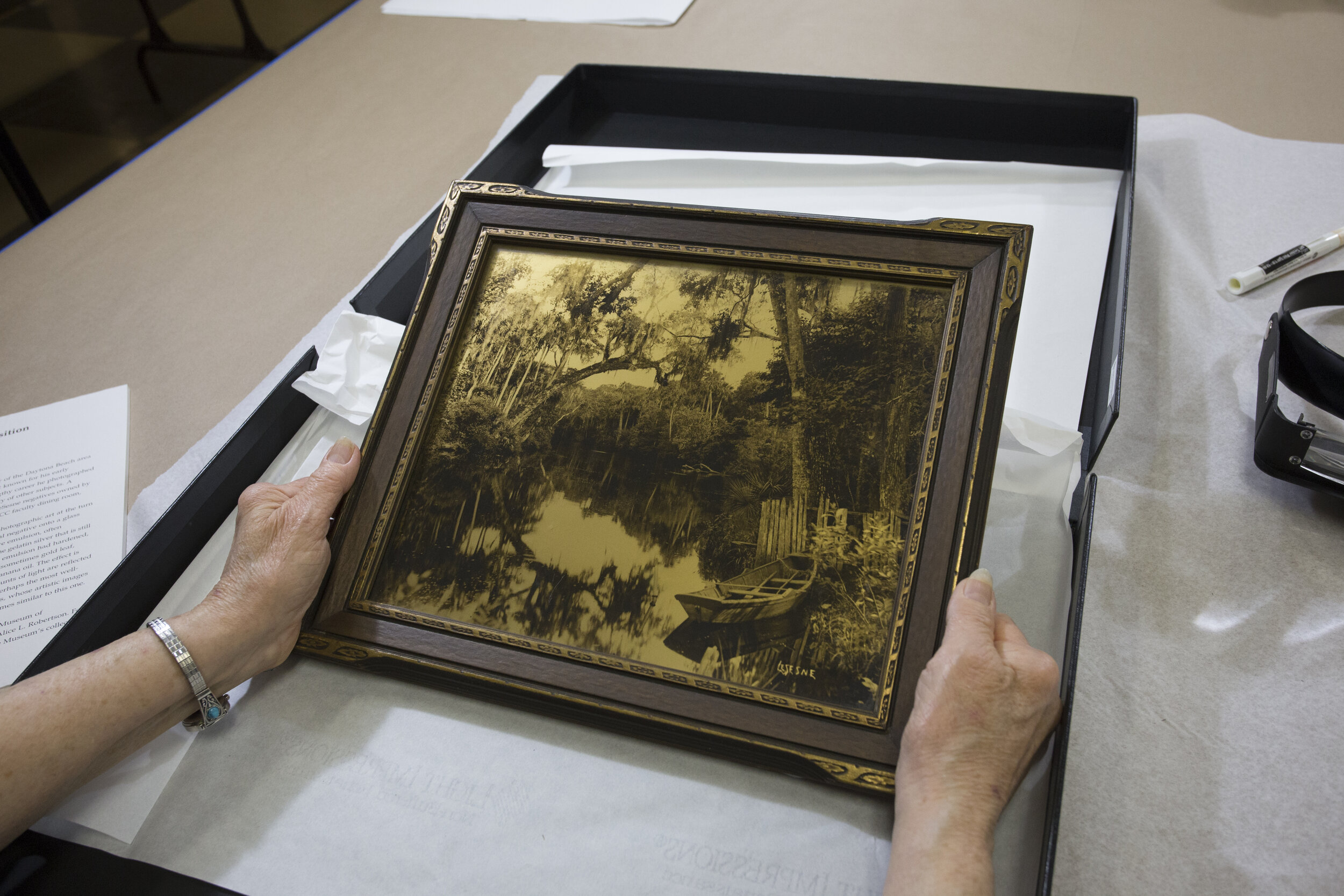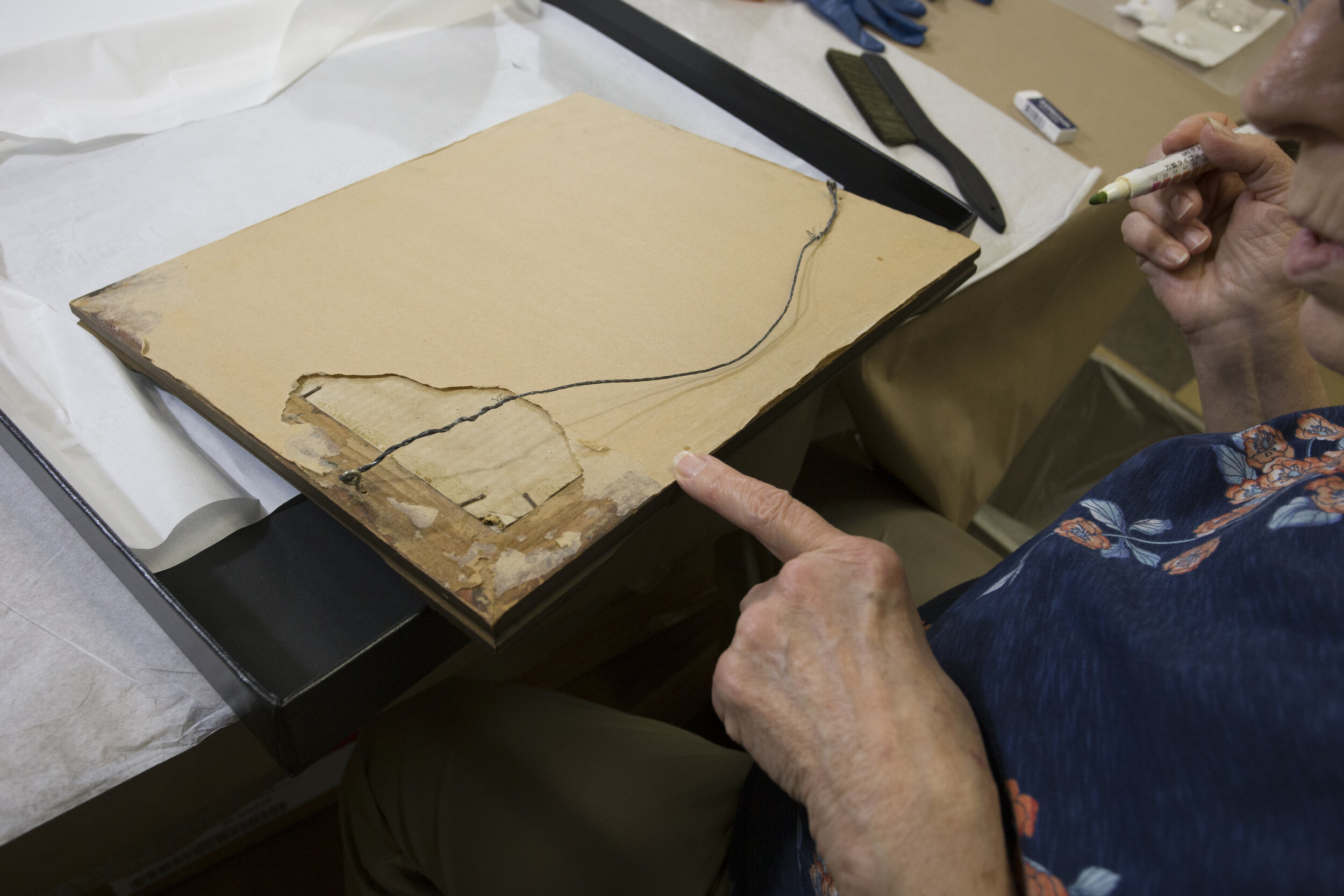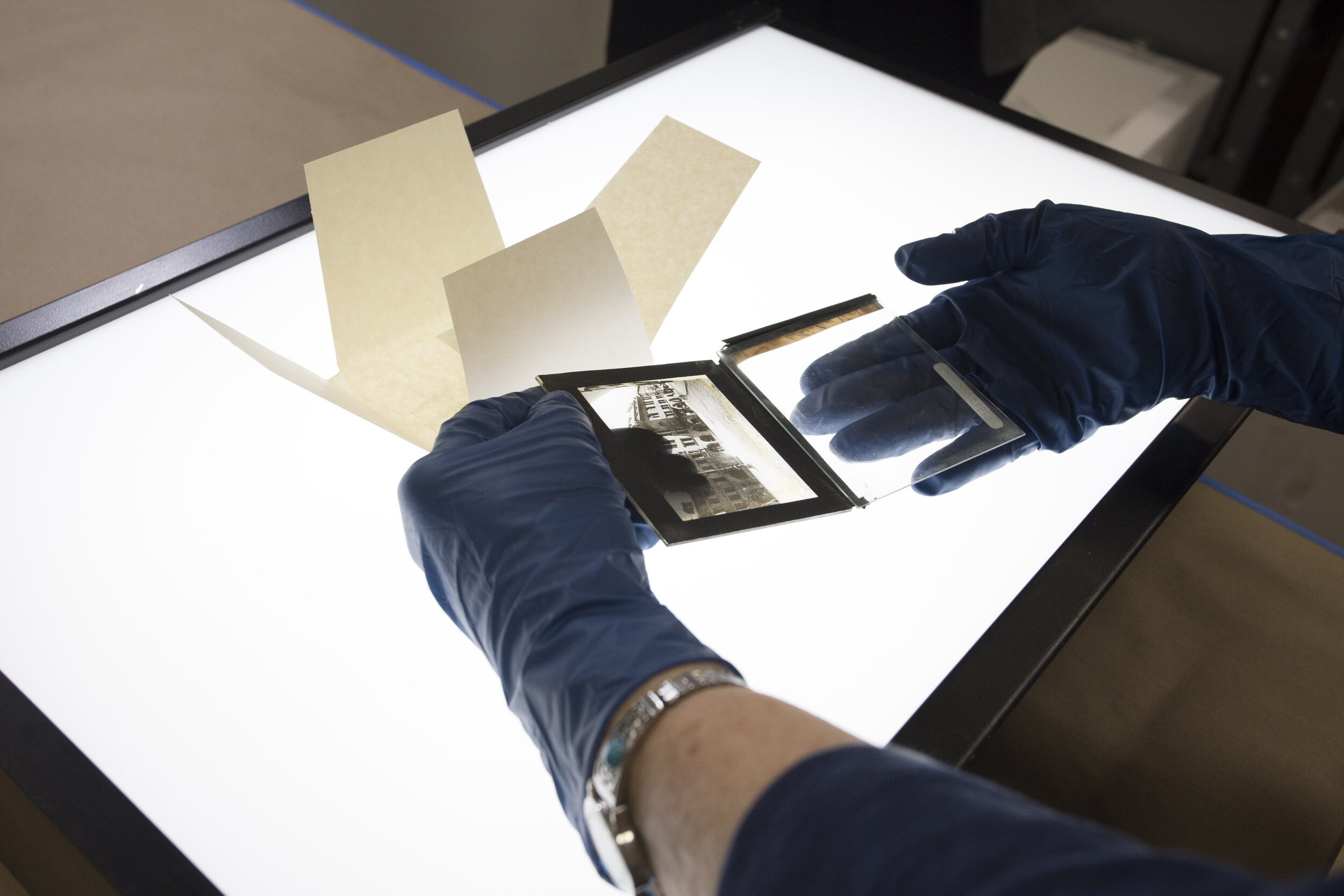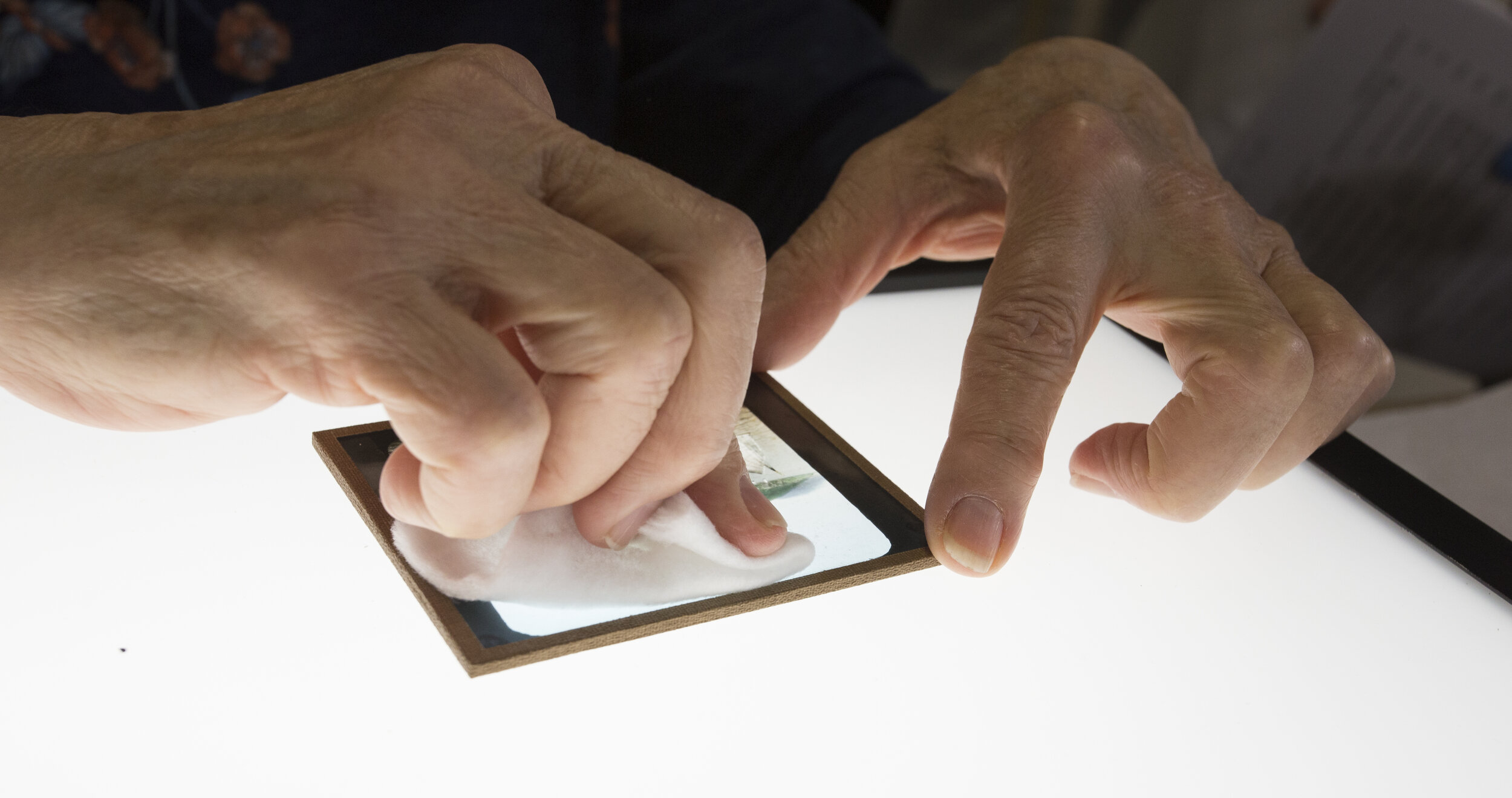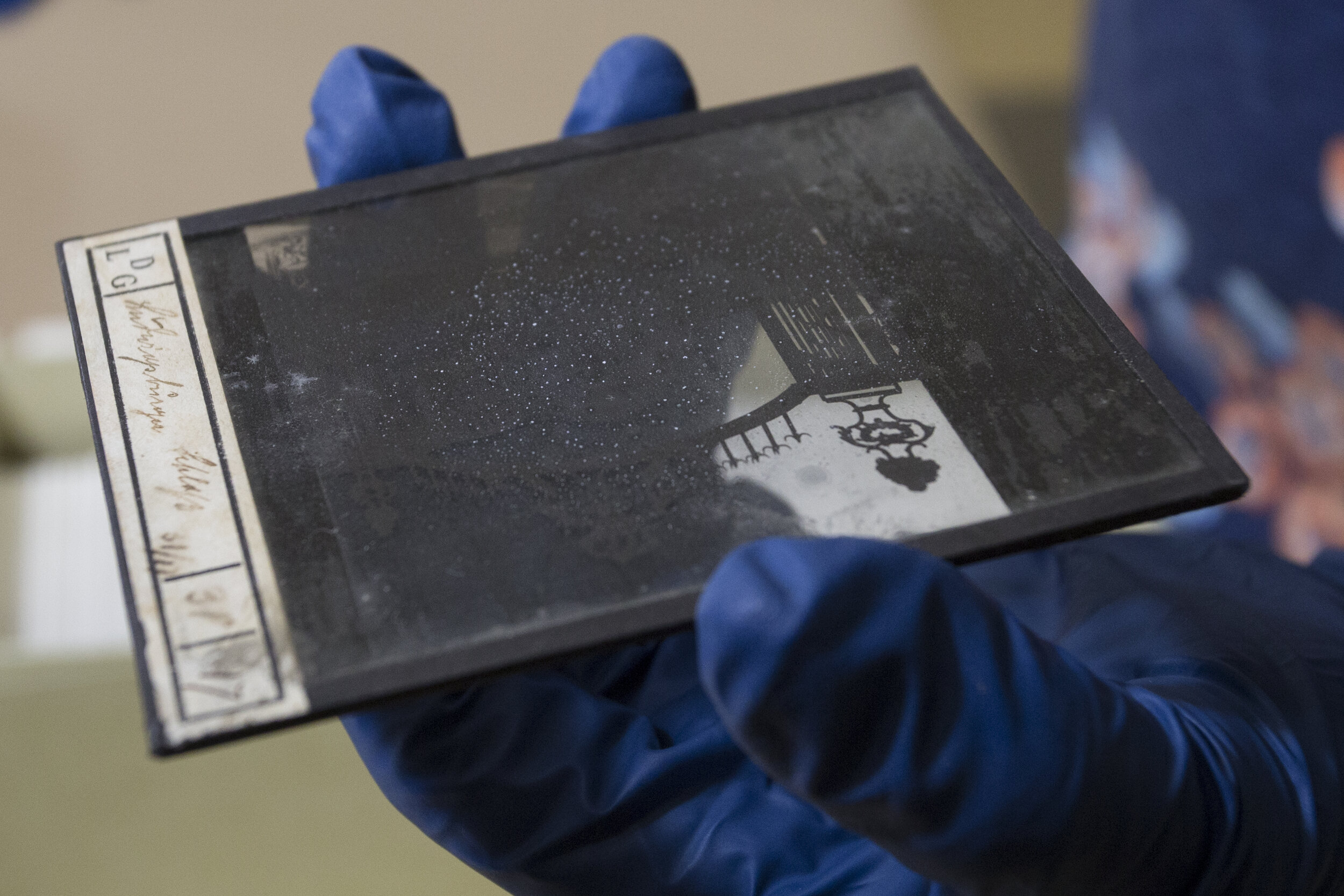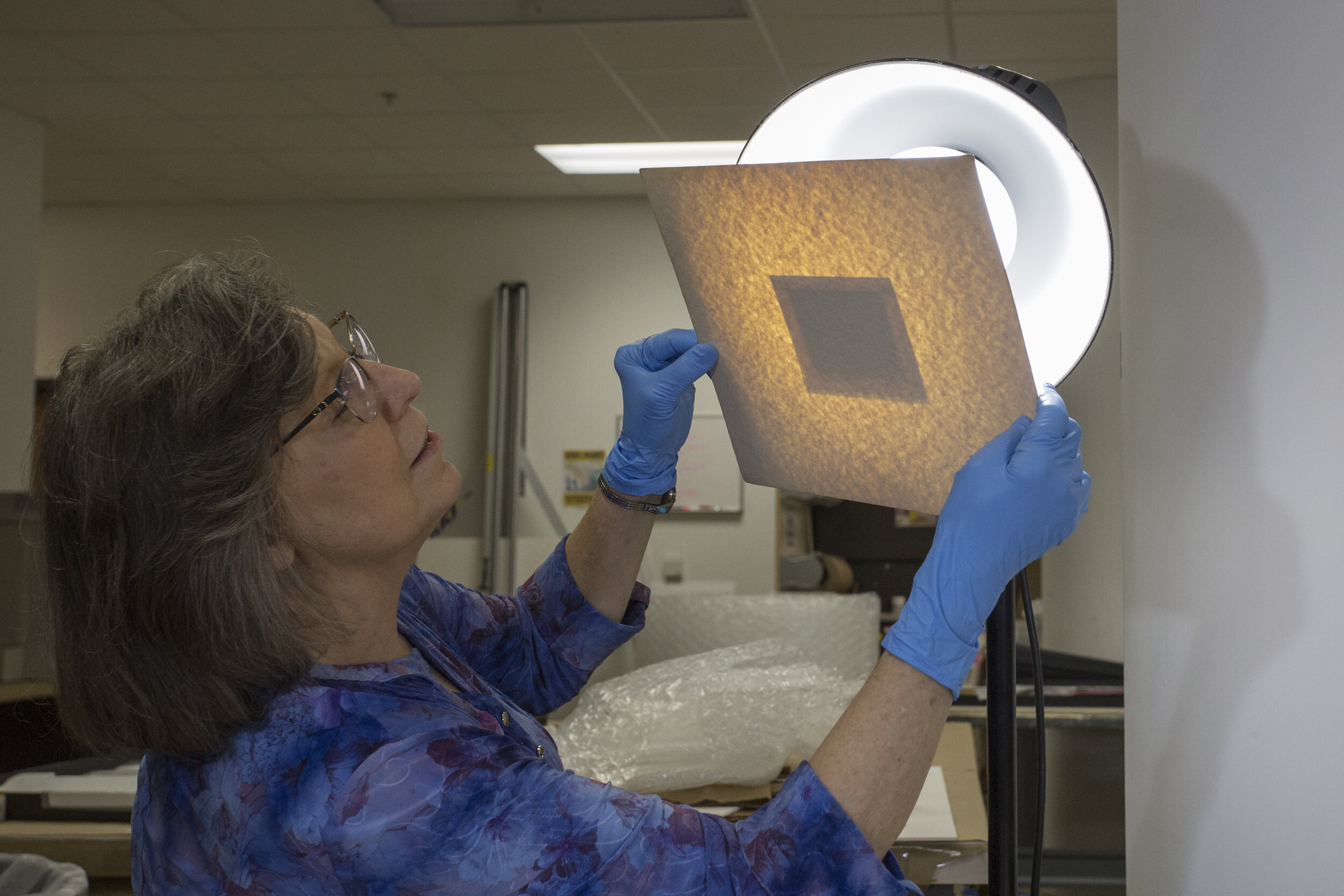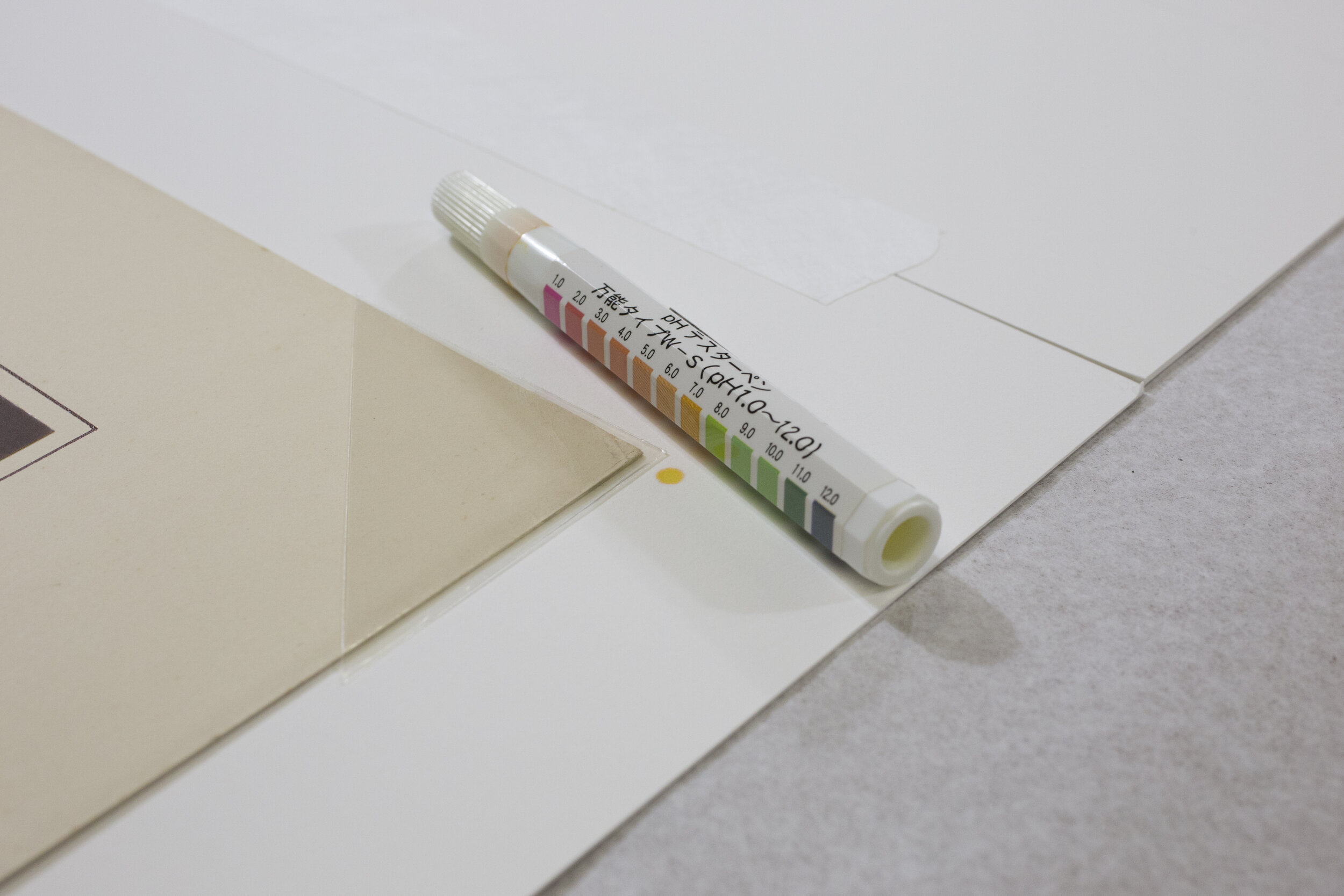EXPANDING THE VIRTUAL MUSEUM EXPERIENCE
NEH CARES GRANT
During Spring 2020, amongst the turmoil and chaos caused by the COVID-19 outbreak, a funding opportunity was announced through support of the National Endowment for the Humanities (NEH). The stated purpose the Coronavirus Aid, Relief, and Economic Security (CARES) Act was to assist institutions and organizations working in the humanities that were affected by the coronavirus. Many cultural institutions were impacted by the closures and the art world was hit particularly hard. As many larger museums like the Met and MOMA pivoted to the production of online content to attract visitors and continue to serve the community, such digital content creation was inaccessible to smaller institutions with limited resources. As such, this grant represented a remarkable opportunity for the SMP to create innovative, engaging online content for a robust and interactive experience for virtual museum visitors.
The NEH received more than 2,300 eligible applications from cultural organizations throughout the US. Only 317 (14 percent) were funded, and SMP was one of only six organizations in Florida to receive one of these prestigious grants.
DATABASE MIGRATION + DIGITIZATION PROJECT
Efforts to digitize the SMP’s collection began back in 2017. As of the culmination of this grant, the digitization portion of the project is 100% complete and all of the object records have been successfully transferred from the old database to the new one. This excellent progress was expedited with the help of three collections assistants working in tandem on the project. Over the course of the grant period, the collections assistants catalogued, conditioned, and rehoused over 800 glass lantern slides and created high resolution images of more than 1,200 objects.
In January of 2021, the museum successfully launched the online component of the collections database, Past Perfect Online, which allows remote access to the museum’s permanent collection. Online access to the collections database has since already proven to be a valuable resource for researchers and scholars.
DIGITAL CONTENT PRODUCTION
Two artist/expert interviews were created in conjunction with the Primitive Florida exhibition. A live artist talk and Q&A session related to this exhibition was also streamed over Zoom with over 75 participants.
A behind-the-scenes installation video was created for From All Points of the Southern Sky, as well as an extended gallery walkthrough video, complete with narration of the exhibition text provided by an Australian voice actress and closed captioning for enhanced accessibility.
The digital content team also produced a mini documentary featuring an interview with a local veteran and photography enthusiast to coincide with Honoring Our Heroes - a veteran’s art exhibition in partnership with the Atlantic Center for the Arts, curated by SMP educator Christina Katsolis.
Finally, the digital content team created a compilation video showcasing five of the artists included in the Separate/Together exhibition in which the graduates discuss their work and thoughts on the Covid-19 Pandemic which caused the cancellation of their student thesis shows.
CONTINUATION OF THE PROJECT
Creating a digital archive of each exhibition has proven to be a rewarding and valuable endeavor for the museum. As such, we will continue to create and share 360-degree interactive tours and gallery walk-through videos for all subsequent exhibitions. Additionally, we plan to continue recording artist talks, public lectures, and presentations for documentation purposes as well as remote accessibility. Future interviews and artist lectures will include closed captioning for increased accessibility as well.
Funding through the Florida Department of Cultural Affairs general support grant has allowed the museum to continue to employ two part-time collections assistants and two part-time digital media assistants throughout the Spring semester. This funding and future grant support will allow the SMP to continue producing digital content to support subsequent exhibitions and collections care projects. Although the database migration project has been completed, efforts to research and expand information and data for objects in the collection are ongoing.
PRESERVATION ASSISTANCE GRANT
In the Fall of 2019, the Southeast Museum of Photography was awarded a prestigious Preservation Assistance Grant through the National Endowment for the Humanities (NEH). The NEH peer-reviewed federal grant program supports vital research, education, preservation, and public programs in the humanities. Grants such as the Preservation Assistance Grant for Smaller Institutions are highly competitive and undergo a rigorous review process. The Preservation Assistance Grant is designed to help institutions improve their ability to preserve and care for their humanities collections. The NEH awarded 45 grants in this category to organizations throughout the country, and only 18 of those were given to colleges and universities.
Funding from this grant enabled the SMP to consult with a leading photography conservator to provide an assessment of the condition of the objects with suggestions to improve the space, current collections care protocols, and the conservation of particular objects. Kim Du Boise, lead conservator of photographs from PhotoArt Imaging Professionals, conducted a three-day site visit in March of 2020. During her visit, Mrs. Du Boise performed a thorough facility evaluation and collections survey in which approximately 15% of the museum’s permanent collection was spot-checked, with an emphasis on objects in “poor” condition and in need of urgent conservation. Mrs. Du Boise then compiled a comprehensive report of her assessment of the collection, storage facilities, galleries, and museum management policy.
As a result of the assessment, Ms. Gordon, SMP Director, conducted a thorough rehousing project of the collection storage and a complete overhaul of the filing system. Funding from the grant allowed the SMP to invest in archival, acid-free preservation materials which will help stabilize and provide adequate protection for collections objects.
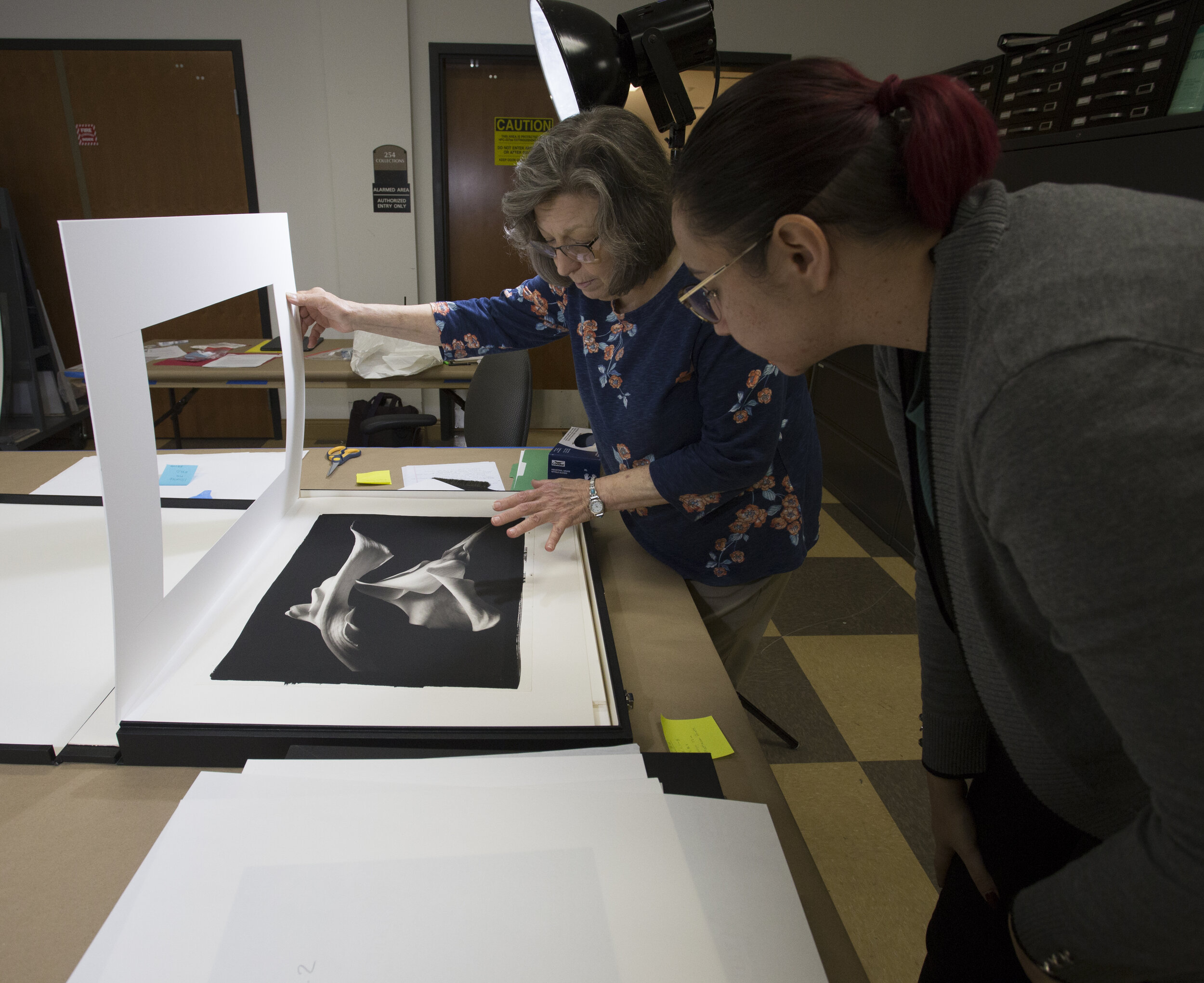
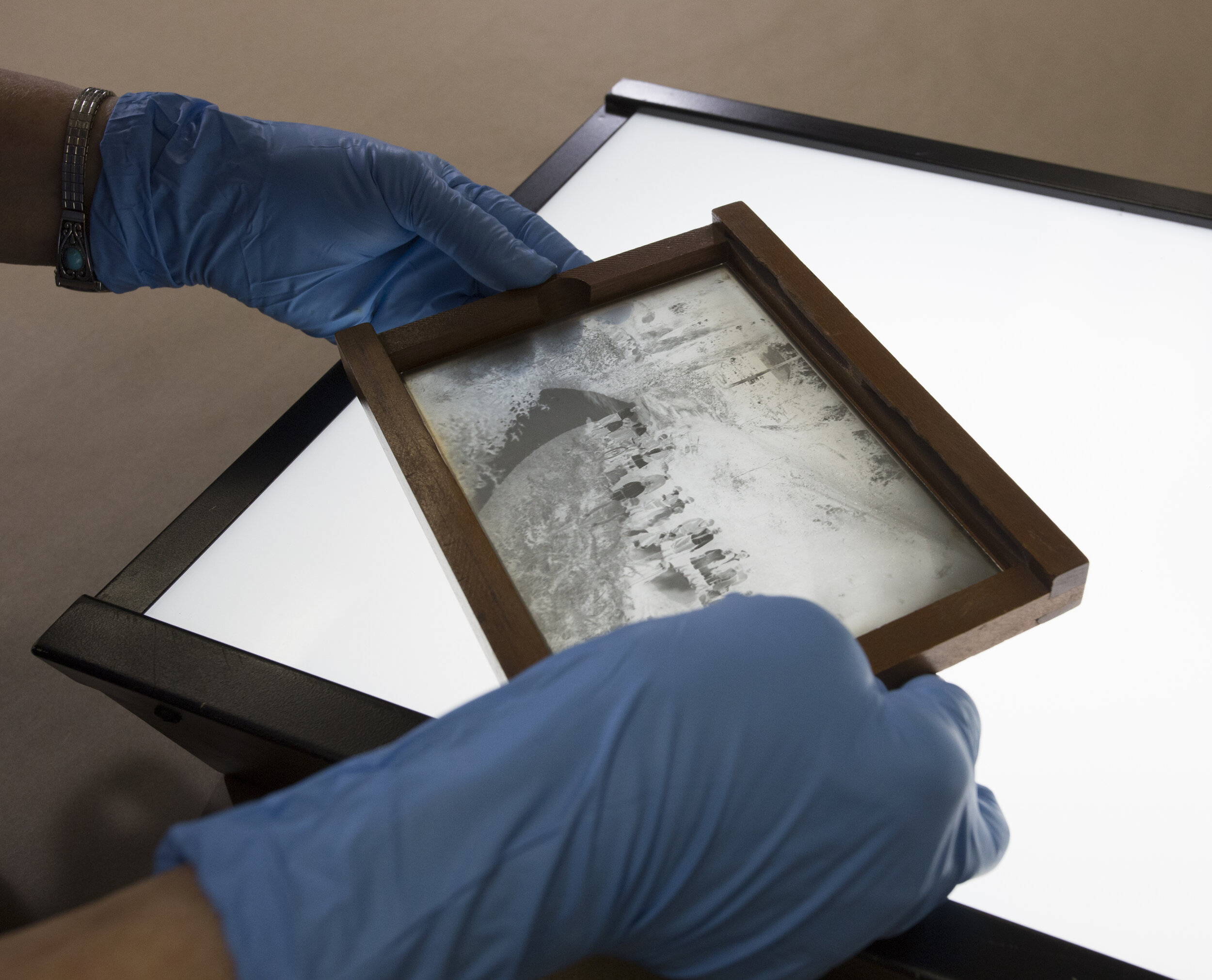
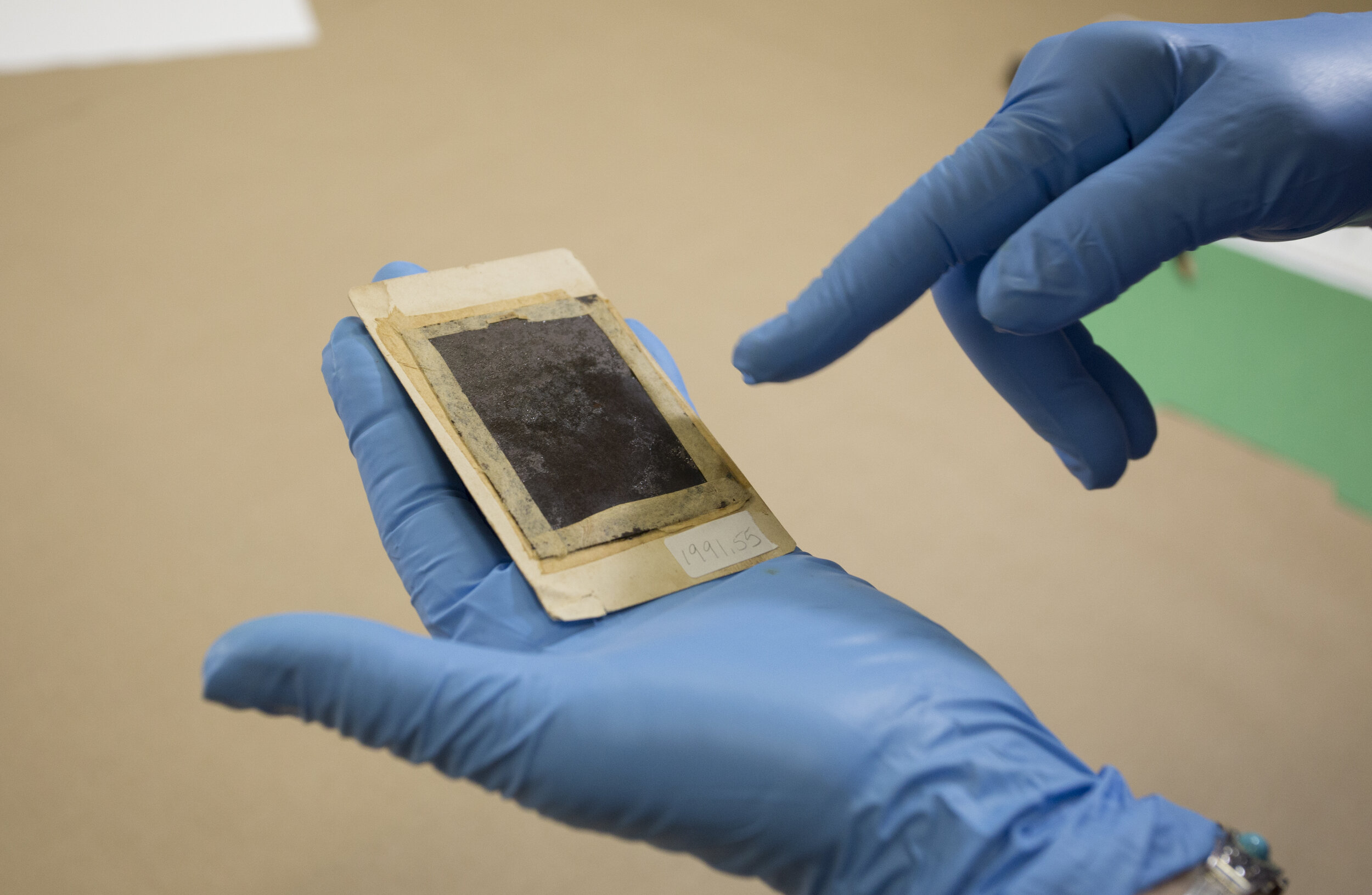
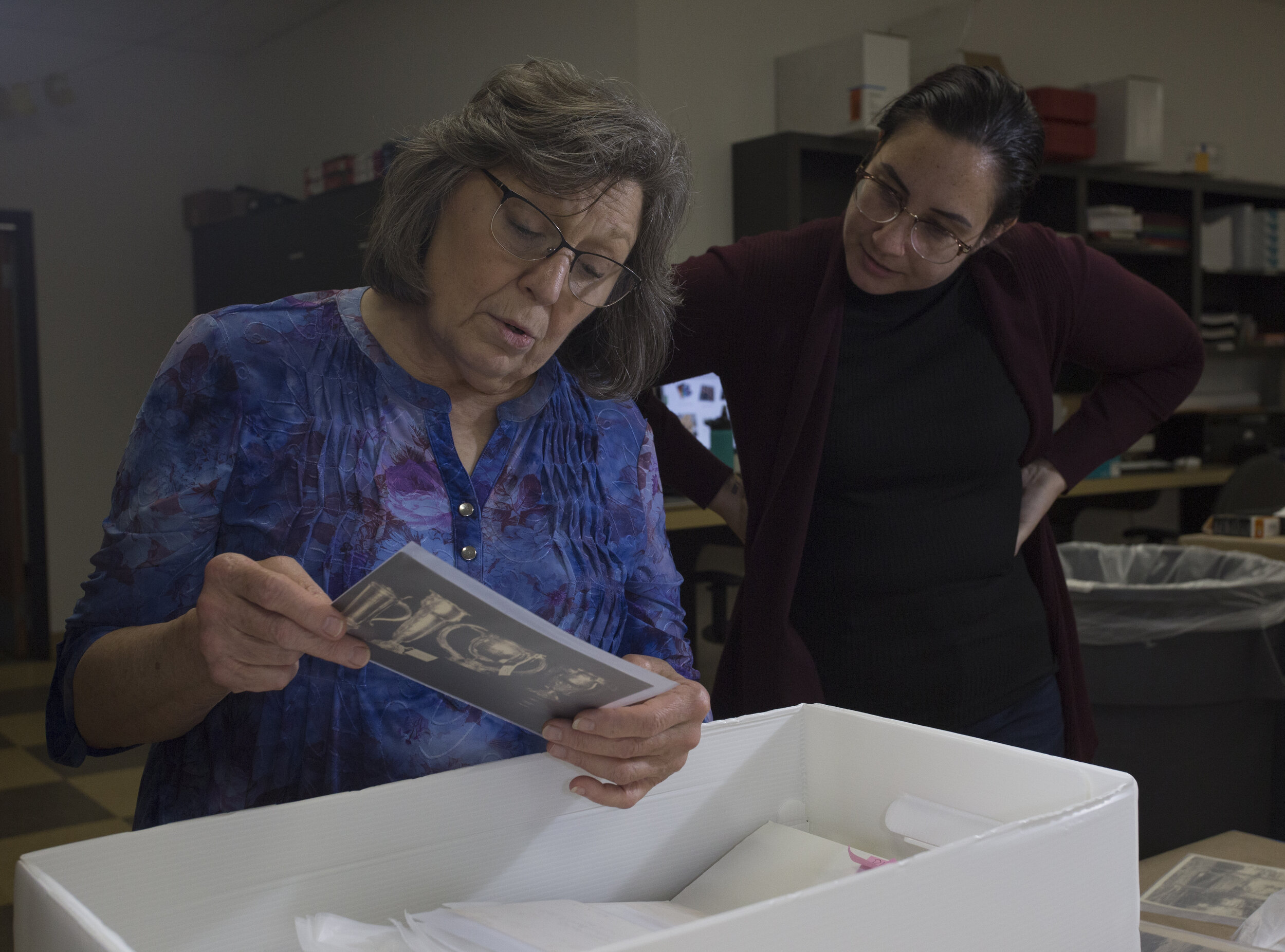
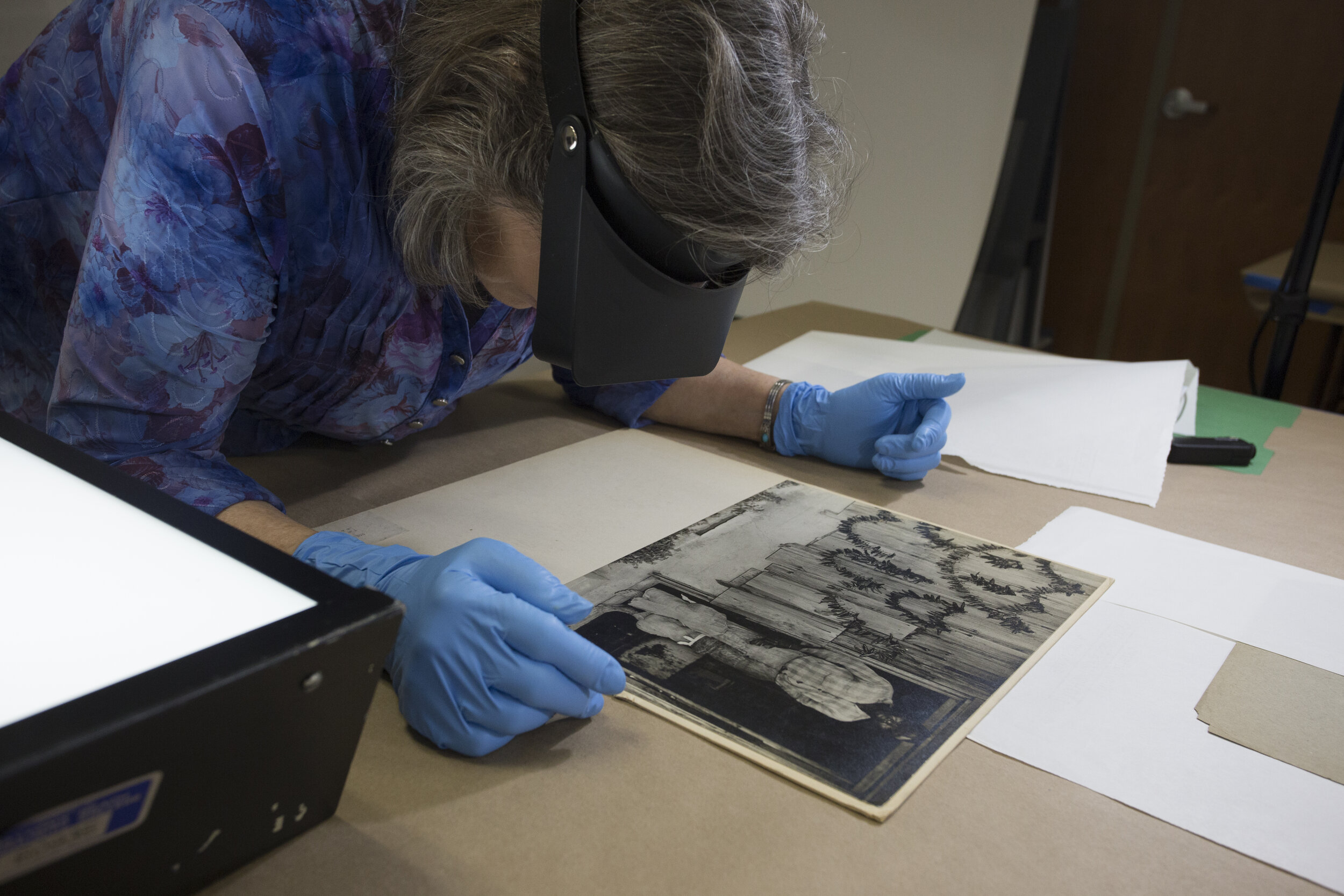
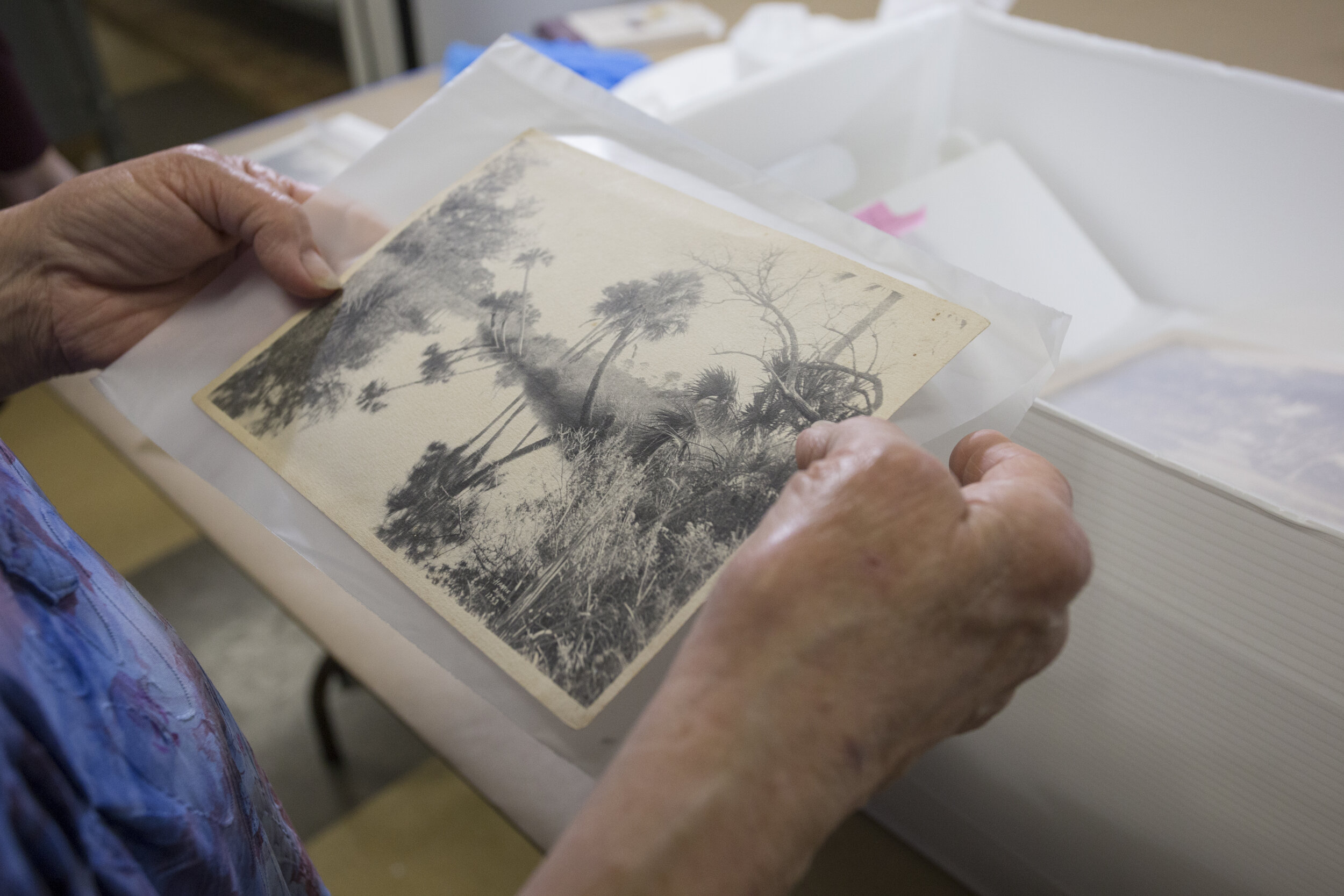
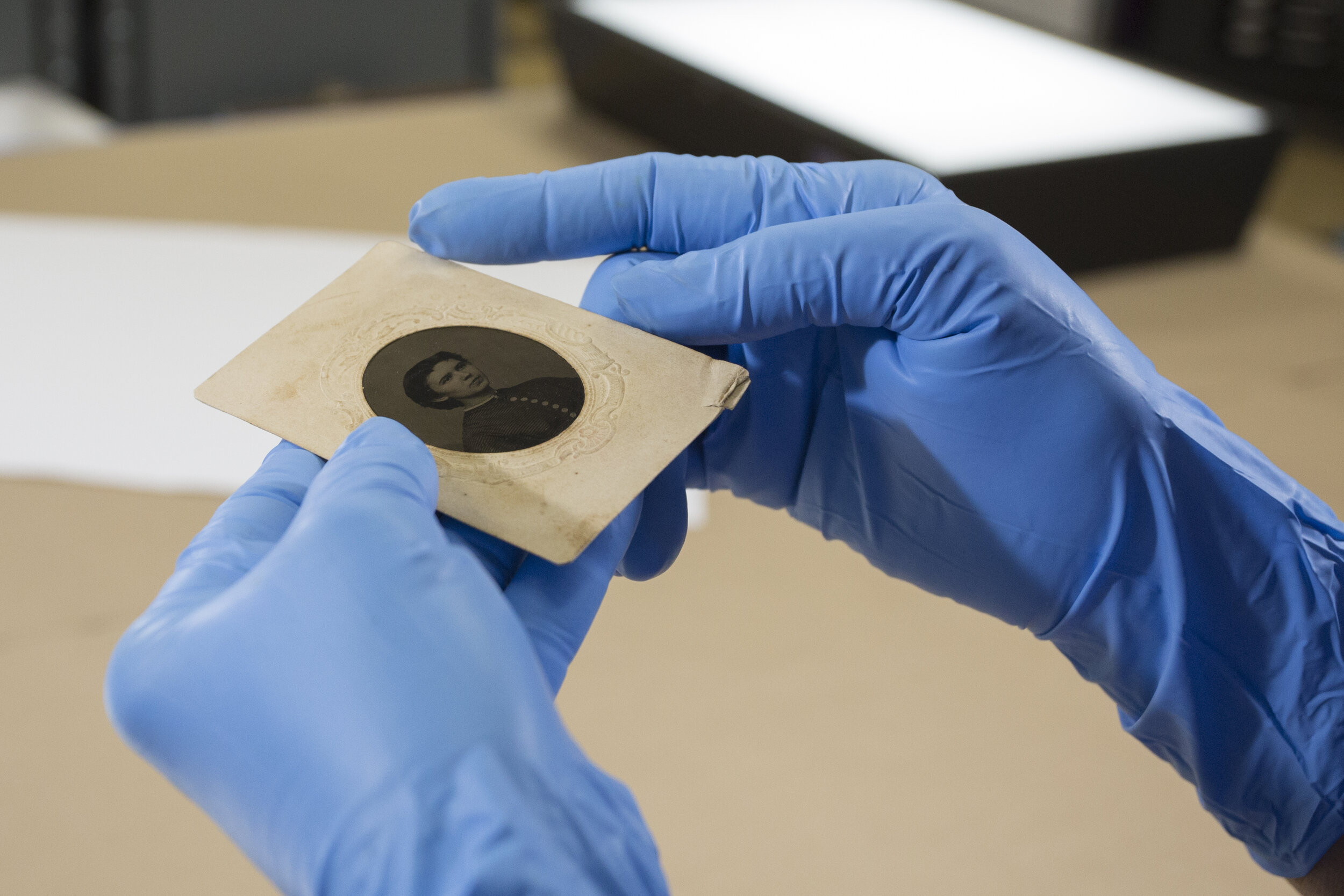
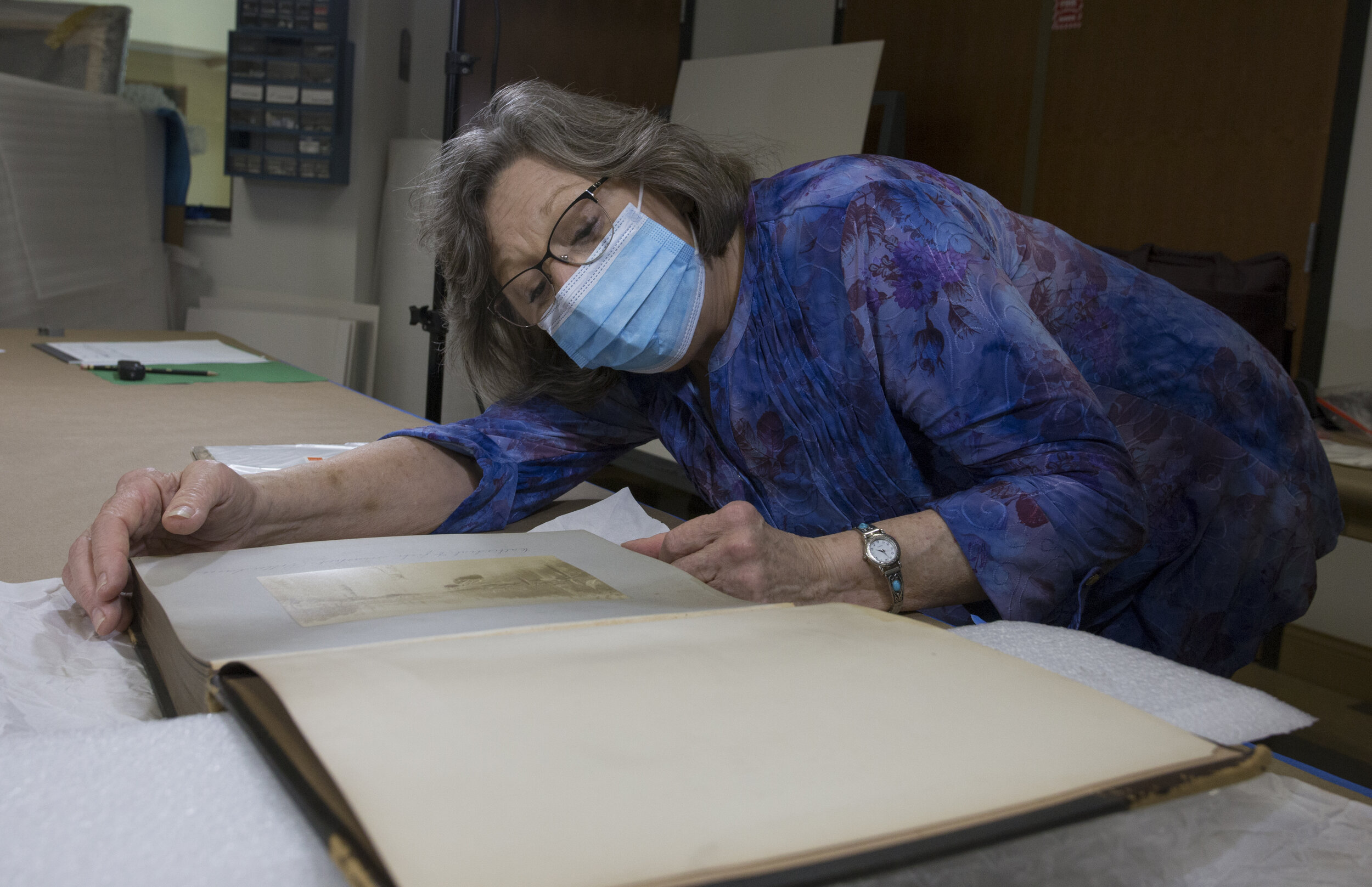
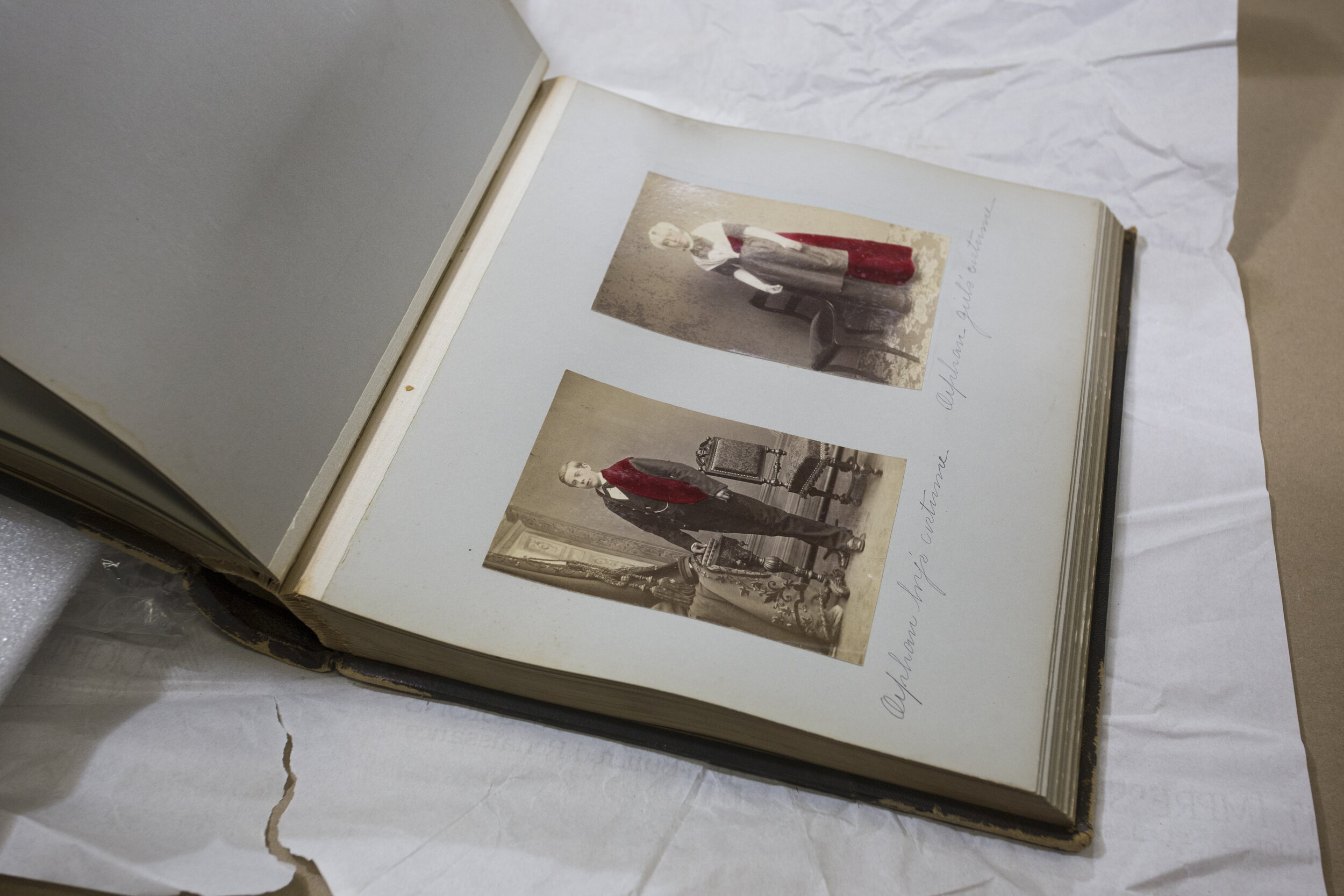
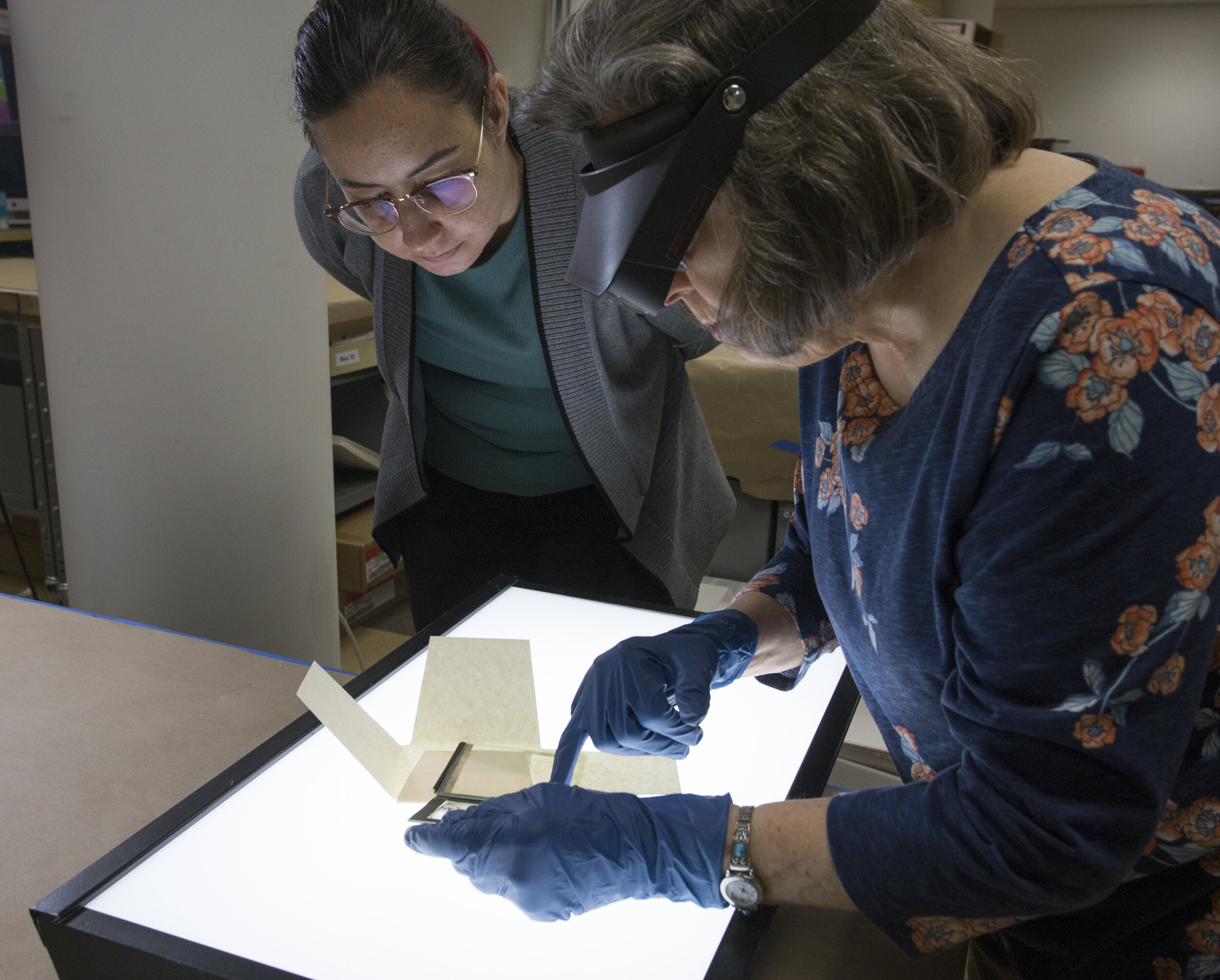
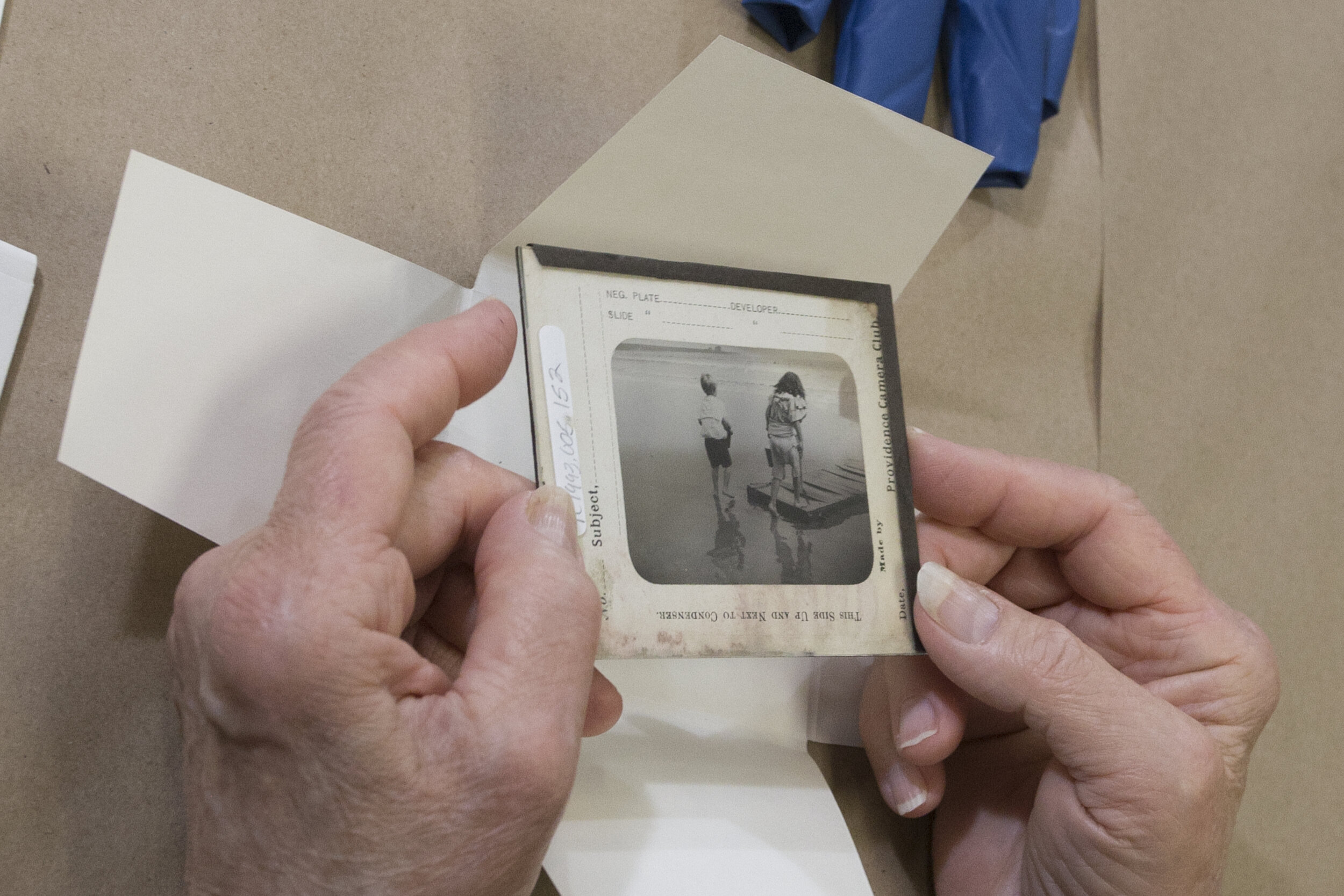
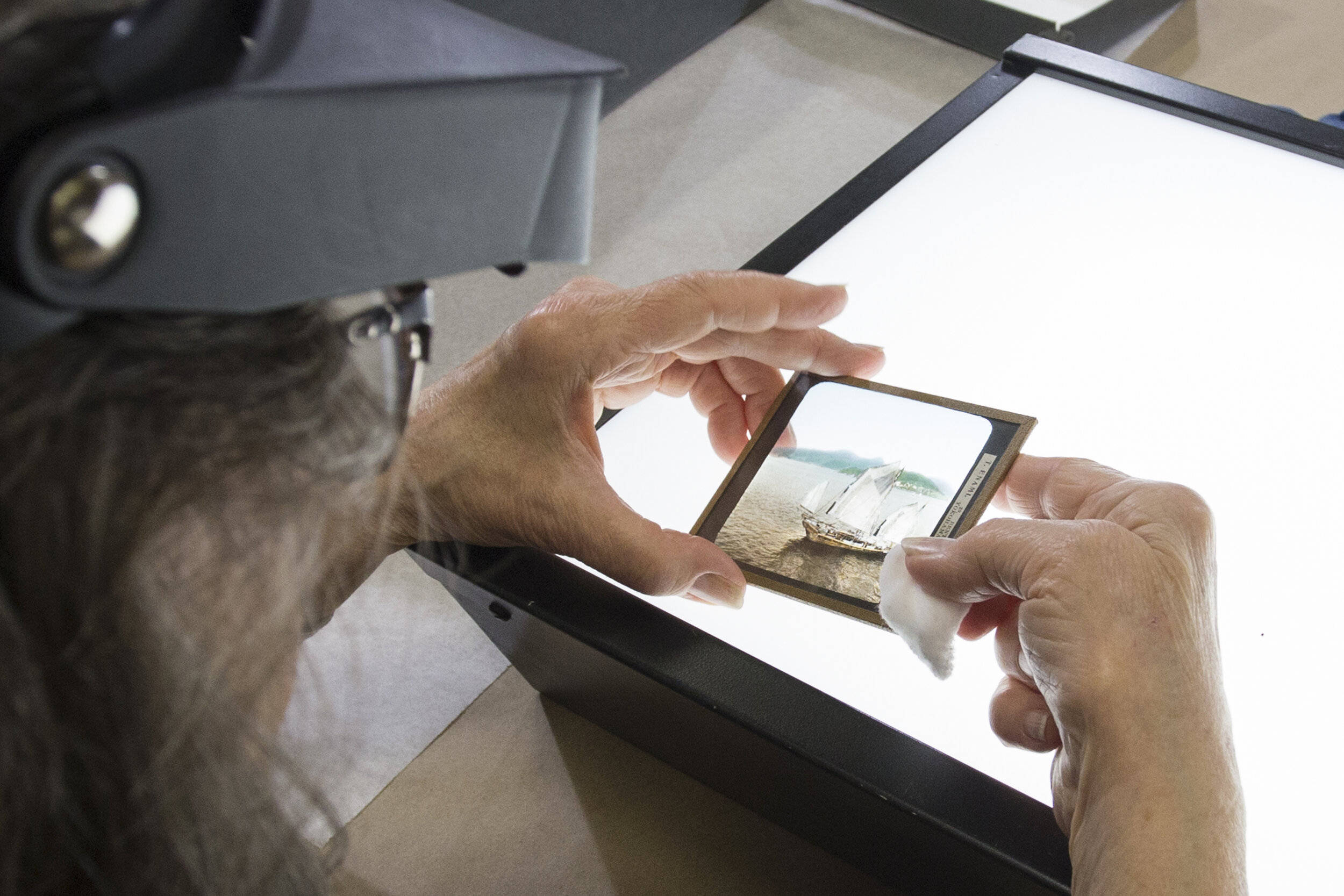
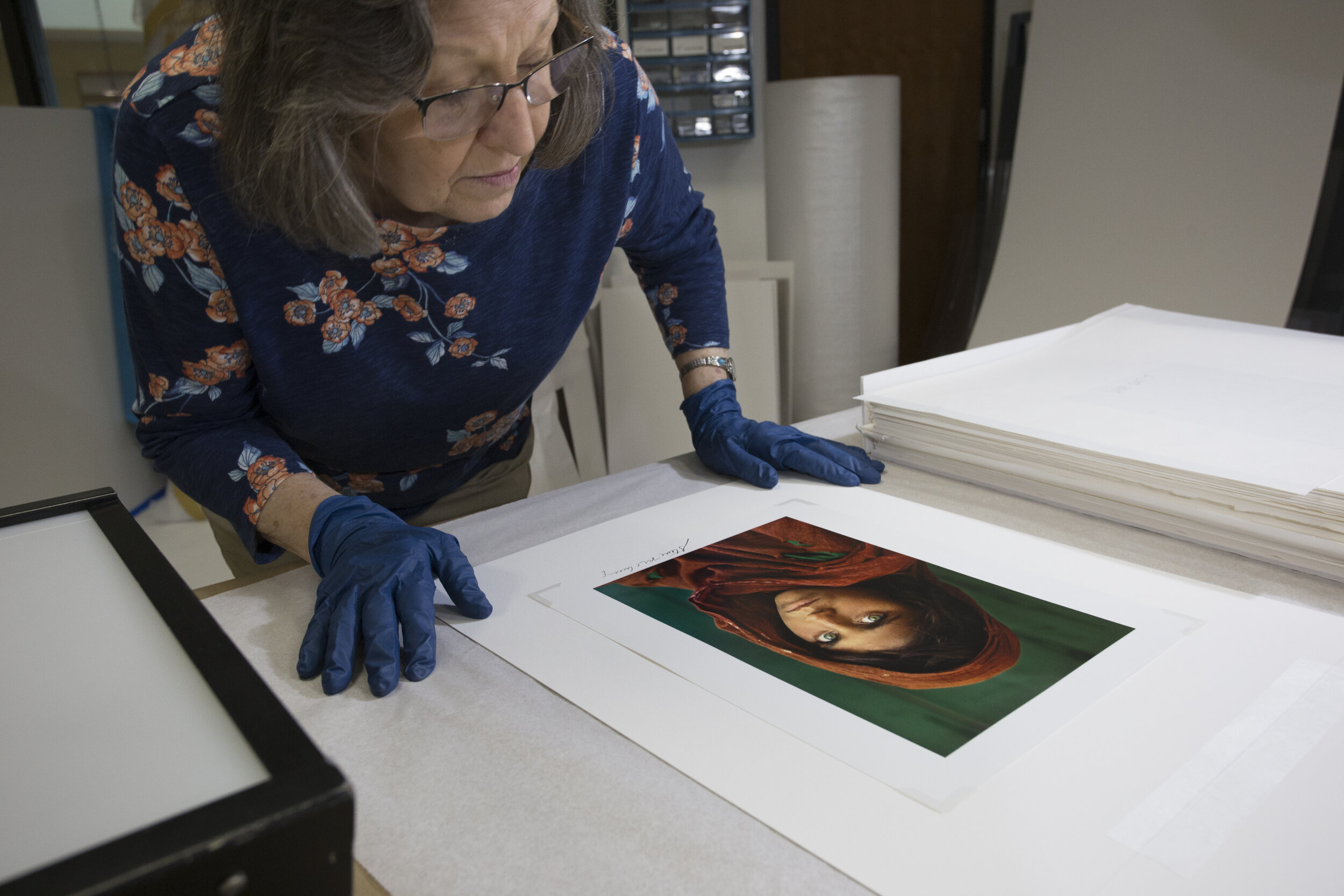
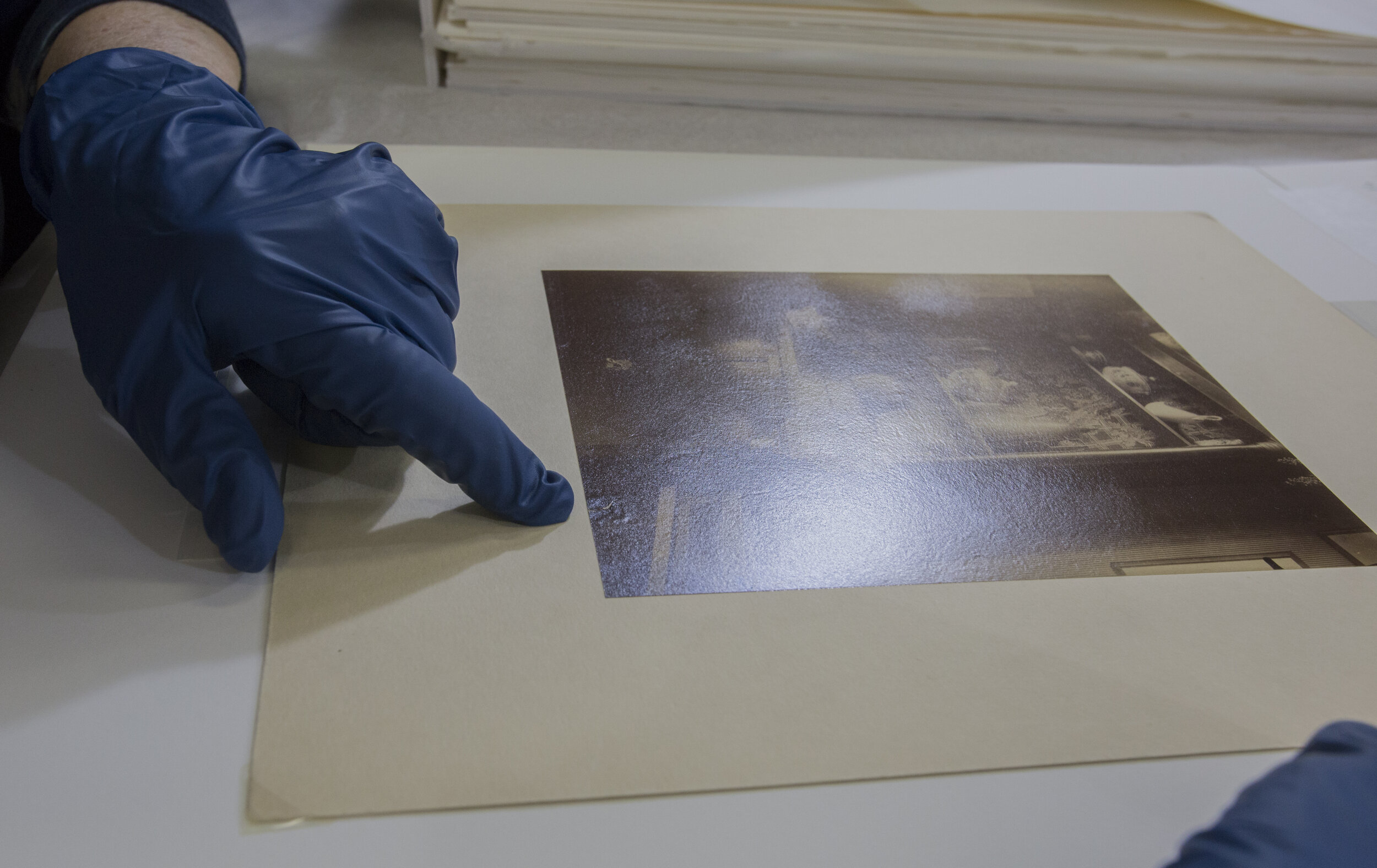
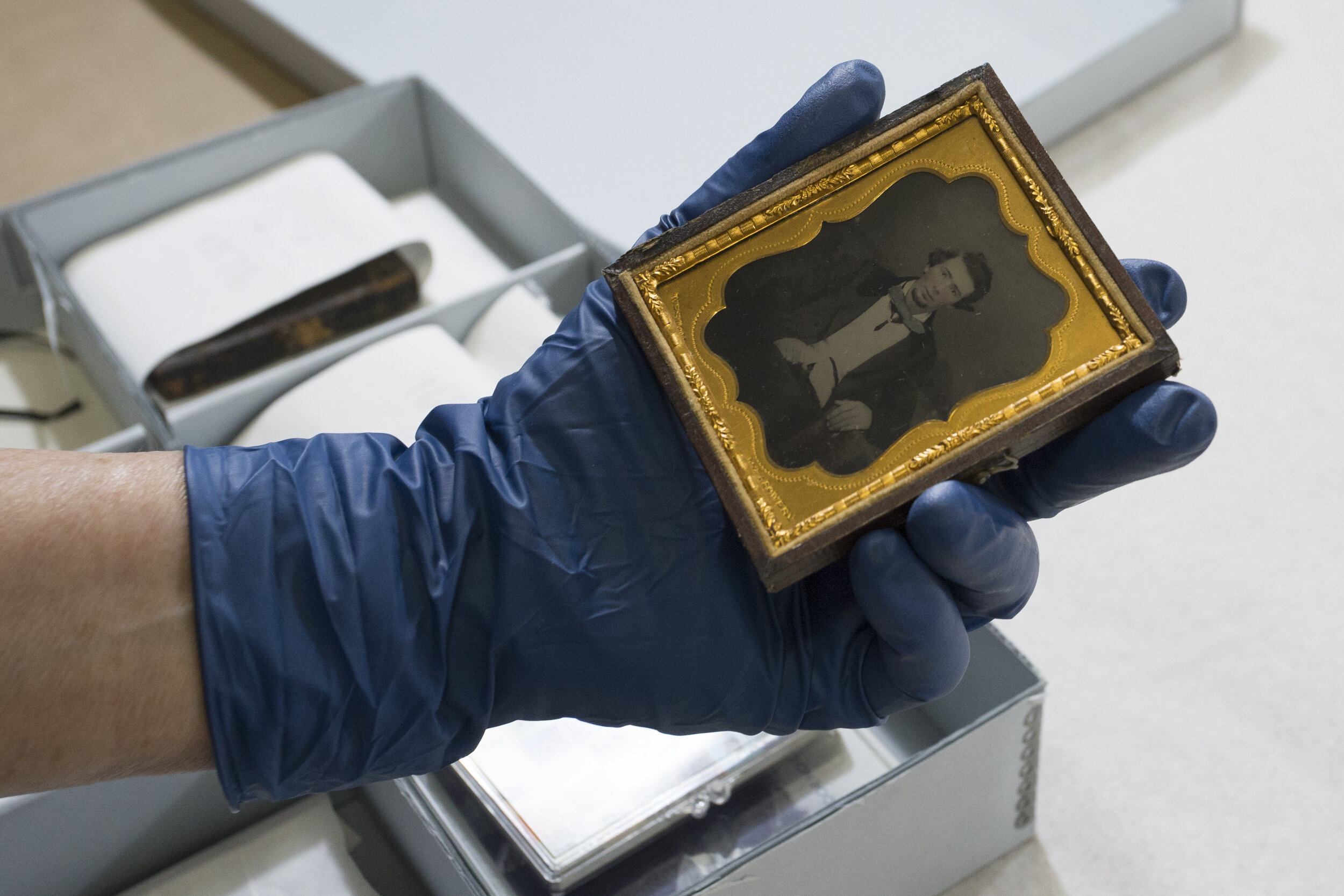
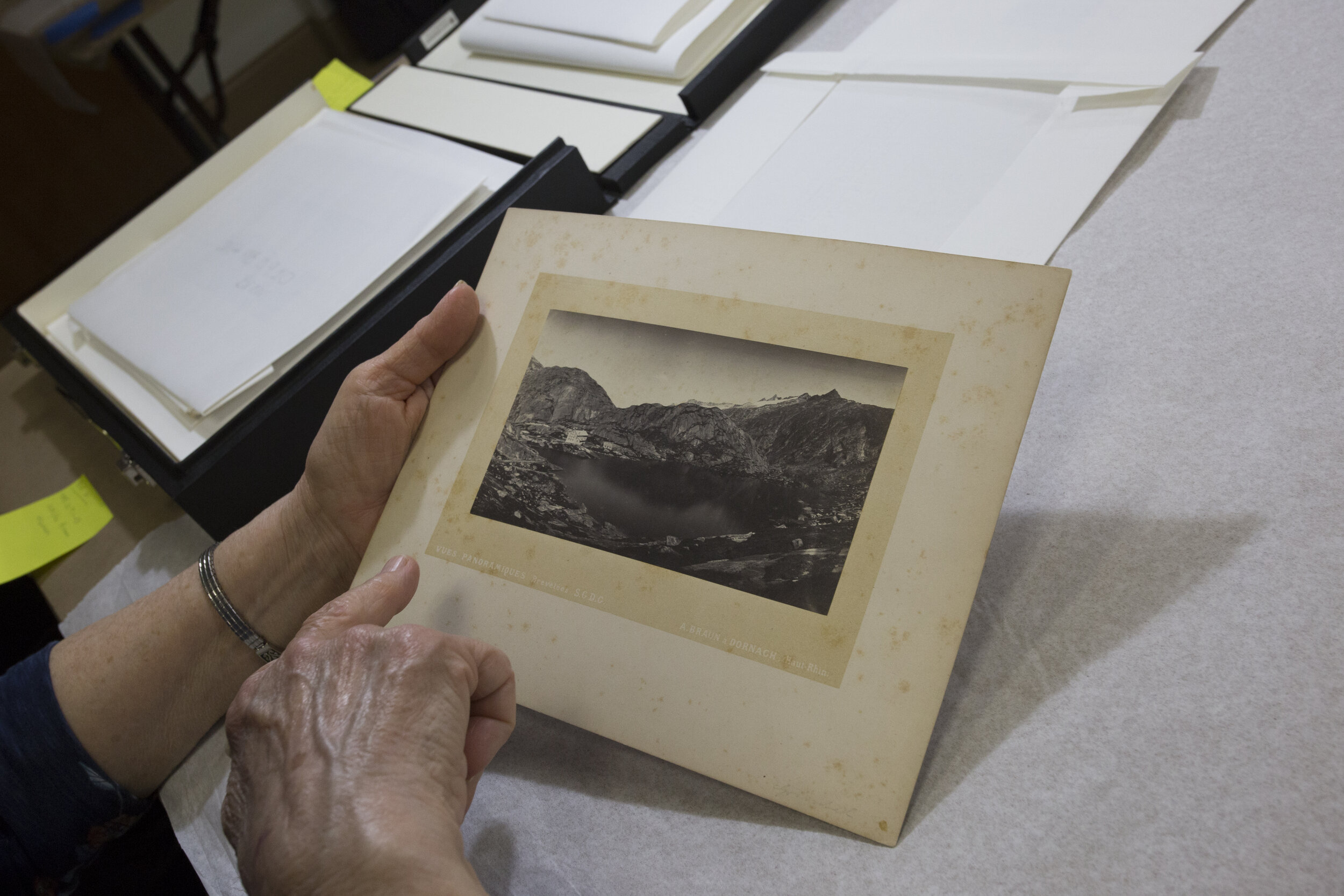
One major project in need of immediate mitigation was a large-scale work entitled Baby Idol by Wallace Wilson. This work was added to the SMP collection in 1992. It is made up of a series of cellulose acetate sheets, similar to those used in x-rays. It has rarely been displayed as it is 13ft long and over 9ft wide. As such, it had been rolled in storage for many years. It was important to evaluate the condition of the work, take documentation photos, and make sure there was no evident damage after being left in storage for so long. During her site visit, photo conservator Kim Du Boise assessed the current state of the piece and advised us to add archival buffered interleaving tissue to create a barrier that would stabilize and protect the emulsion. Then we wrapped the outside of the piece with tyvek, an archival water-resistant material, that will keep the piece protected from dust for long-term storage. Rehousing oversized works like this one is imperative to preserve the longevity of the work.
Behind the scenes video of SMP Staff rehousing ‘Baby Idol’ by Wallace Wilson.
Another important conservation project was to clean and replace the cardboard backer on a vintage 1910 orotone by Volusia County photographer R. H. LeSesne. This orotone was acquired by the museum in 2001 and features a luminous golden Florida landscape. Given its age – over 110 years old – the work is in remarkable condition with only moderate scratches and soil build up on the surface of the plate, concentrated along the perimeter near the frame. However, the backing board used in framing was non-archival cardboard which is acidic and can cause deterioration of the plate with prolonged exposure. As such, it was necessary to unframe and replace the backing board.
Photography conservator Kim Du Boise examined this work during her spot check of the inventory and advised SMP Director, Erin Gordon, about what could safely be done to remove the soil from the surface and mitigate further damage caused by the acidic cardboard. Following Mrs. Du Boise’s expert guidance, Gordon carefully removed the rusted nails holding the cardboard backer in place. Then, using soft, lint-free, anti-static wipes and distilled water, Gordon carefully cleaned the surface to remove the built up soil. A new acid-free, archival backing board was cut to replace the cardboard and a thin protective layer of plexiglas was added to shield the surface from further scratches. Rust-resistant framer’s points secured everything in place and the work is now ready for display.
CONTINUATION OF THE PROJECT
While the SMP has made considerable progress toward improving the storage conditions of the collection, many conservation efforts still need to be undertaken. A select number of works were found to have mold activity identified; these works have been isolated and need urgent conservation. In addition, several glass lantern slides had weakening or loss in the paper-tape around the perimeter on one or more sides. These will need to be fully sealed with replacement tape to ensure no moisture or dust can enter and cause damage.
Some glass lantern slides and daguerreotypes showed evidence of glass disease in which imperfections in the manufacturing of the glass can result in crystallization formations on the surface.
Three large-scale offset lithographs on canvas by Robert Rauschenberg need to be unmounted and reframed as they have broken or stretched hinges due to the weight of the canvas and gravity. Reframing is planned to coincide with the inclusion of the works in a forthcoming exhibition scheduled for Spring 2022.
Furthermore, a large number of works, especially those dating back before 1940, were printed on acidic papers which will need to be treated with a deacidification spray on the verso to mitigate further acid degradation. Deacidification treatment is planned for summer 2021.
Additional state and federal grant opportunities supporting conservation and facility renovation will continue to be identified and sought after by the SMP.
The National Endowment for the Humanities: Democracy demands wisdom.
Any views, findings, conclusions, or recommendations expressed in this web page do not necessarily represent those of the National Endowment for the Humanities.

